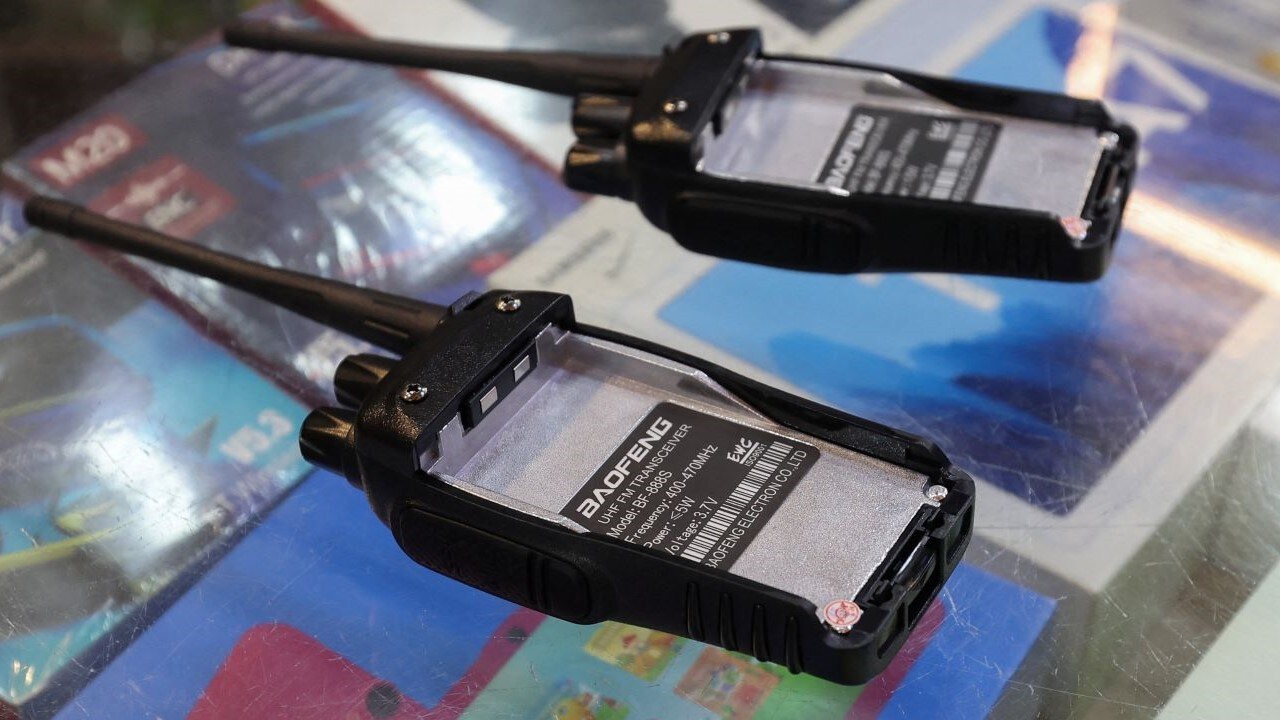
Lebanon is reeling from unprecedented attacks targeting Hezbollah's communication devices. Explosions caused pagers and walkie-talkies used by the militant group to detonate, resulting in numerous casualties. While the origin of these attacks remains unconfirmed, many suspect Israeli involvement.
This new tactic in modern warfare has raised alarming questions about the vulnerability of other electronic devices. Could smartphones, power banks, or smartwatches be next? The attacks have sparked widespread concern among civilians, who fear their personal devices could be compromised in similar ways. Social Media Panic: Could Smartphones Be Next? Following the explosions, social media platforms were flooded with posts speculating on the potential vulnerability of smartphones.

Many Lebanese citizens expressed fears that if pagers and walkie-talkies could be compromised so easily, the ubiquitous smartphone could be the next target. “Are our phones safe? Could the same thing happen to us?” one user wrote on Twitter, echoing the concerns of many who now fear for their safety. Smartphones have become an essential part of daily life, used for communication, banking, and even medical monitoring.
The idea that these devices could be compromised in a similar way has left many in a state of anxiety. Pagers, being simpler devices with limited security, were likely easier to target. However, smartphones, with their advanced operating systems and security features, might not be as easily compromised.
Air Vice Marshal (Dr) Devesh Vatsa explains that while it’s theoretically possible to modify a mobile phone into a potential bomb, replicating the sophisticated attacks seen with the pagers would be far more challenging on modern handsets. "Smartphones have multiple layers of security in their software, along with hardware safety measures to prevent them from overheating or malfunctioning," he said. Experts also emphasised that modern smartphones come equipped with systems that check for hardware integrity.
Unverified components used during the manufacturing process are usually flagged during quality inspections, significantly reducing the risk of hardware tampering. However, Dr. Vatsa did note that tampering with smartphones at the supply chain level, while unprecedented, is not entirely out of the question.
"Given how diversified the global smartphone supply chain is, a motivated threat actor could theoretically introduce an explosive charge by tampering with the internal hardware," he said. "In theory, it’s possible," Dr. Vatsa added, "but in practice, it would require an extensive and coordinated effort across the supply chain.
" Qatar Airways Bans Pagers and Walkie-Talkies on Beirut Flights In response to the rising concerns, Qatar Airways announced a ban on carrying pagers and walkie-talkies on board flights from Beirut Rafic Hariri International Airport. Following directives from Lebanon’s Directorate General of Civil Aviation, the airline is prohibiting passengers from carrying these devices in both checked and carry-on luggage, as well as cargo. The ban will remain in place until further notice.
This move comes amid growing concerns over the safety of communication devices. A spokesperson for Qatar Airways said the decision was made "in the interest of passenger safety" and in compliance with Lebanese aviation regulations. The ban evokes memories of the Samsung Galaxy Note 7 crisis a few years ago, when the device was banned from several airlines globally after multiple reports of the phones catching fire.
The US Consumer Product Safety Commission recorded 96 cases of Note 7 batteries overheating, with 13 reports of burns and 47 instances of property damage linked to the phones. Despite Samsung halting production of the device, the incident had a lasting impact on airline safety protocols. What’s Next for Lebanon and Its Citizens? As Lebanon braces for more potential attacks, the country faces a dual crisis: the threat of escalating military conflict and a growing distrust in technology.
In the meantime, authorities and tech experts are urging civilians to take extra precautions with their devices, even though the solutions are far from clear. For now, one thing is certain: the explosions in Lebanon have set a new precedent in the use of technology in warfare, and the fear of compromised devices—whether pagers, walkie-talkies, or smartphones—continues to loom over the region..













